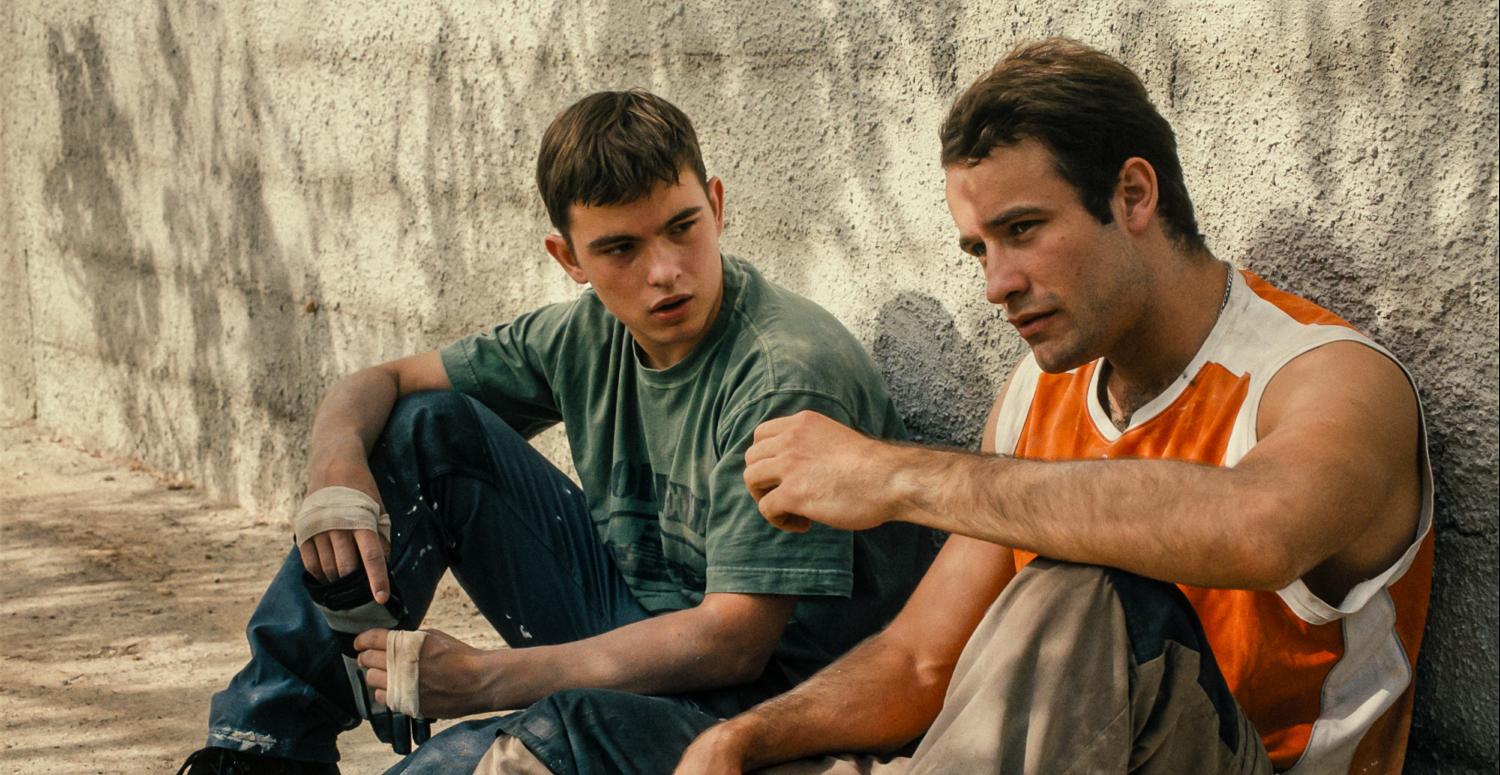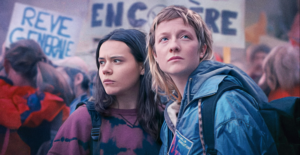Enzo
2025

FR EN
Enzo est un adolescent qui semble démolir la théorie bourdieusienne : vivant dans un confort bourgeois et absolu dans les hauteurs de La Ciotat, avec des parents CSP + et un frère en prépa, le jeune homme est pourtant apprenti en maçonnerie, aux côtés de travailleurs pour la plupart immigrés. Enzo semble perdu dans sa vie, mais peut-être qu’il l’est vraiment.
Né d’un projet de feu Laurent Cantet qui prévoyait de réaliser ce film après l’avoir co-écrit avec Robin Campillo, c’est finalement ce dernier qui aura parachevé le travail. D’où une double influence et un double regard que l’on perçoit très nettement dans ce long-métrage.
D’un côté (celui de Laurent Cantet), l’on retrouve une quête d’identité. Enzo (Eloy Pohu), fils à papa (Pierfrancesco Favino) et maman (Élodie Bouchez) qui prennent bien [trop] soin de lui, est tiraillé entre deux univers : le luxe de vivre dans une superbe maison aux frais de ses parents qui contraste évidemment avec la dureté de son travail dans le secteur du bâtiment sous la chaleur écrasante du soleil méditerranéen. Et pourtant, aucun des deux milieux ne paraît vraiment lui convenir ; languide, peu avenant et silencieux, il ne se sent pas tout à fait à sa place, où qu’il soit. Du moins, jusqu’à ce qu’il croie trouver un début d’idéal.
Car de l’autre côté (celui de Robin Campillo), l’on retrouve un (attendu et peu surprenant) désir en efflorescence. Même s’il a une copine (incarnée par une Malou Khebizi – toujours juste et au passage bien différente de celle de l’excellent « Diamant Brut »), Enzo s’éprend peu à peu de son mentor au travail qu’est la personne charismatique de Vlad (Maksym Slivinskyi). Mais bien sûr, avec le temps, vient la désillusion – préalablement ambiante.
Si « Enzo » raconte une histoire somme toute assez classique, le long-métrage prend toutefois le temps de creuser dans les méandres des pensées et des intranquillités de son personnage-titre, avec notamment plusieurs scènes, séquences et répliques assez marquantes visuellement ou scénaristiquement. Ainsi, la belle conclusion de la trame, en particulier, renforce cette saudade qui qualifierait le mieux ce film décidément doux-amer.
Axel Chevalier
Enzo is a teenager who seems to debunk the bourdieusian theory: living in absolute bourgeois comfort in the heights of La Ciotat, with upper-class parents and a brother in a preparatory course, the young man is nevertheless a mason’s apprentice, working alongside mostly immigrant workers. Enzo seems lost in his life; in fact, he might really be.
Originally intended to be directed by the late Laurent Cantet, who co-wrote the film with Robin Campillo, it is ultimately the latter who completed the work. The result is a double influence and a double vision that are clearly apparent in this film.
On one hand (Laurent Cantet’s), there’s the quest for identity. Enzo (Eloy Pohu), the son of a father (Pierfrancesco Favino) and a mother (Élodie Bouchez) who take far too much care of him, is torn between two worlds: the luxury of living in a superb house at his parents’ expense, in stark contrast to the harshness of his job in the construction industry under the scorching heat of the Mediterranean sun. And yet, neither world seems to really suit him; languid, unwelcoming and quiet, he feels out of place wherever he is. At least, until he thinks he’s found the first glimmer of the dream.
Because on the other hand (Robin Campillo’s), there’s an (expected and unsurprising) blossoming desire. Even though he has a girlfriend (played by Malou Khebizi – always spot-on and quite different from the excellent “Wild Diamond”), Enzo gradually falls in love with his mentor at work, the charismatic Vlad (Maksym Slivinskyi). But of course, as time goes by, disillusionment – previously in the air – sets in.
Although “Enzo” tells a fairly conventional story, the film nonetheless takes the time to delve into the intricacies of its main character’s thoughts and concerns, with several striking scenes, sequences and lines, both visually and script-wise. The beautiful conclusion to the plot, in particular, strengthens the bittersweet feeling that best describes this film.
Axel Chevalier

